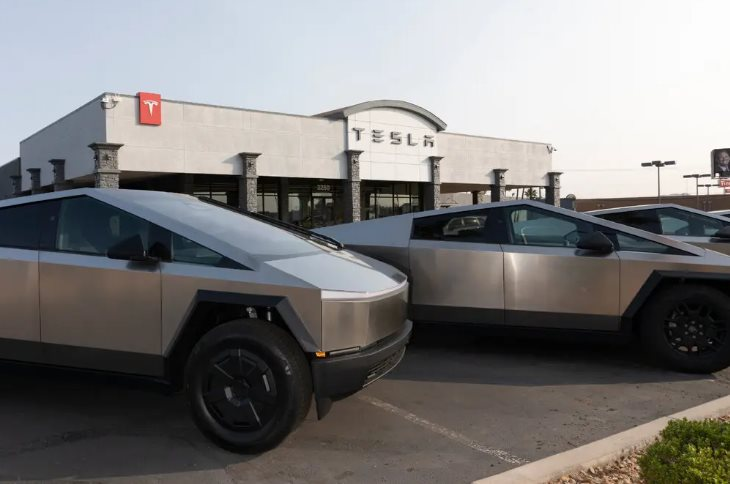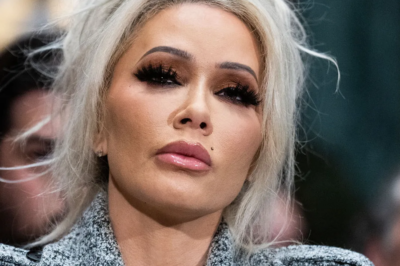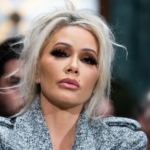Currently, Tesla has been facing a serious decline in sales and profits.
![]()
As long as Tesla CEO Elon Musk remains “persona non grata” in the Trump administration, he will have a hard time convincing Republicans not to roll back billions of dollars in climate policies that have benefited his electric car and battery company.
Not only that, Musk could also lose influence with federal regulators – the ones who could decide the fate of the self-driving taxi deployment plan that he once described as “the future of the company”.
Tesla has been dealing with a severe decline in sales and profits. Its shares plunged 14% on Thursday, their biggest one-day drop ever, after Musk and Trump traded barbs on social media. By Friday, Tesla shares had recovered nearly 4%, either because investors hoped the two would reconcile or because they thought the stock had become too attractive after the previous crash.
“TRADIC”
Elon Musk’s relationship with his Republican allies on electric vehicles has been rocky from the start. The domestic policy bill passed by the Republican-controlled House of Representatives—and now being considered by the Senate—would significantly hurt the electric vehicle market in the United States, where Tesla remains the largest manufacturer.
This bill would:
– Eliminate tax credit of up to $7,500 for electric vehicle buyers
– Gradually end subsidies for battery factories and lithium refineries
– Stop financial support for electric vehicle charging stations
-Imposing a $250 annual fee on electric car owners – which environmental groups say is punitive
These measures would affect all electric vehicle manufacturers. But the Trump administration and congressional Republicans are also seeking to eliminate regulations that Tesla has benefited from—specifically, regulations that allow Tesla to sell clean air credits to other automakers that don’t meet emissions standards.
In the first three months of this year alone, Tesla has earned $595 million from these credits—more than the company’s net income for the same period ($409 million). In other words, without these credits, Tesla would be losing money.

“For years, that credit has been the deciding factor in whether Tesla makes a profit or a loss,” said Jesse Jenkins, an associate professor at Princeton University who studies the electric vehicle industry.
Jenkins estimates that if Republican policies are implemented, the US would sell 7.7 million fewer electric vehicles between now and 2030 than under the current Biden administration. Tesla alone could sell 3.4 million fewer vehicles, equivalent to nearly two years of current sales, assuming Tesla retains its 44% market share of new electric vehicles in the US.
Additionally, subsidy programs for large-scale battery storage systems — a fast-growing area for Tesla — will also be cut.
For his part, at least until this week, Musk seemed to accept that the Republican measures were a “necessary price” to avoid spiraling federal deficits — which he believes would bankrupt the United States.
He may have hoped that gains from other companies like SpaceX would offset Tesla’s losses. Or he thought that cutting incentives for electric vehicles would hit companies like General Motors and Ford, which are still losing money on their electric vehicles, harder.
By Thursday, however, Musk appeared to have changed his mind.
“Keeps the electric vehicle and solar cuts in the bill – but oil and gas subsidies are untouched (so unfair!!),” Musk wrote on social media X.
Trump immediately responded on Truth Social that Musk was “mad” about the cuts, and threatened to cancel government contracts and subsidies for SpaceX and Musk’s other businesses.
AUTODRIVING CARS IN THE BLUR
Musk had hoped the new administration would create a more favorable regulatory environment for self-driving cars — including setting federal standards to replace state laws. Tesla is expected to start operating a self-driving taxi service in Austin, Texas, this month — part of a plan that Musk believes will generate trillions of dollars in revenue in the future.
However, the National Highway Traffic Safety Administration (NHTSA) is still investigating crashes involving Tesla’s autopilot technology. With Musk now out of favor with the White House, federal officials may no longer be shy about tightening oversight.
“Tesla’s entire valuation is now based on the dream of AI and self-driving cars,” said Stephanie Valdez Streaty, director of industry analysis at Cox Automotive.
If Musk steps back from right-wing political controversies, Tesla could restore its image with liberal consumers — who have contributed to its sales slump in both Europe and the US.
“If he can neutralize the division he created with the anti-Trump base, that would be very beneficial,” said Ben Rose, president of Battle Road Research.
Mr Rose also noted that Tesla’s emissions credit revenue may not disappear entirely, as some buyers are still needed to comply with regulations in the European Union.
Tesla’s strongest growth came when its cars didn’t receive federal incentives, he noted.
“Tesla benefits a lot from subsidies,” he said, “but is it really completely dependent on subsidies?”
Mr. Rose still believes Tesla shares will outperform the broader market. But many other investors are not so optimistic.
The Future Fund, where Gary Black is CEO – and has frequently commented positively on Tesla – sold all of its Tesla shares last month.
On the X platform, Mr. Black argues that Tesla’s future profitability is not high enough to justify its current valuation.
“Tesla’s market value has completely decoupled from its fundamentals,” he said.
News
Bunnie Xo didn’t hesitate to open up about why she gave Jelly Roll a second chance after the singer’s infidelity, but there would never be a “third time.”
Bunnie Xo Reveals Why She Gave Jelly Roll a Second Chance After Affair, But Would He Get a Third? ‘Absolutely…
Gwen Stefani was the “only person” to vote for Blake Shelton to be named “Sexiest Man in the World”.
Carson Daly Jokes Gwen Stefani Was the ‘Only One Voting’ the Year Blake Shelton Was Named Sexiest Man Alive The…
Lauren Alaina speaks out after becoming a victim of online body shaming that left her furious.
Country Star Issues Blunt Response After Being Criticized for Her Appearance: ‘I’m Seething’ Lauren Alaina is speaking out after falling victim…
Resurfaced clips of Kid Rock’s creepy comments about the underage Olsen twins are back to haunt us all
Kid Rock just can’t help making the news these days. If only it was for good reasons! This week alone,…
Unbelievable: Couple goes viral on social media for “BDSM love-fest” at Bailey Zimmerman concert.
Florida Couple Goes Mega-Viral For Shocking Display Of PDA At Bailey Zimmerman Concert I’m not going to yuck someone’s yum,…
Once highly praised by Elon Musk, an investment decision by Bill Gates turned into a disaster, resulting in losses exceeding $10 billion.
Once highly praised, one of Bill Gates’ investment decisions turned into a disaster, resulting in losses exceeding $10 billion More…
End of content
No more pages to load












